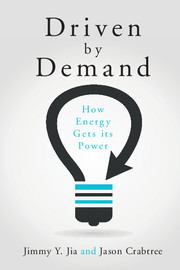Book contents
- Frontmatter
- Dedication
- contents
- List of figures
- List of tables
- Acknowledgments
- Part I Introduction
- Part II Three frameworks
- Part III Critical decisions
- Part IV Energy futurism
- 10 Towards better management of energy infrastructures
- 11 Risk management in energy
- 12 Resilience as a core value
- 13 Exploring energy security
- 14 Energy-as-a-service
- Part V Societal advancement
- References
- Index
10 - Towards better management of energy infrastructures
from Part IV - Energy futurism
Published online by Cambridge University Press: 05 June 2015
- Frontmatter
- Dedication
- contents
- List of figures
- List of tables
- Acknowledgments
- Part I Introduction
- Part II Three frameworks
- Part III Critical decisions
- Part IV Energy futurism
- 10 Towards better management of energy infrastructures
- 11 Risk management in energy
- 12 Resilience as a core value
- 13 Exploring energy security
- 14 Energy-as-a-service
- Part V Societal advancement
- References
- Index
Summary
The only thing we can be sure of about the future is that it will be absolutely fantastic. So, if what I say now seems to you to be very reasonable, then I will have failed completely. Only if what I tell you appears absolutely unbelievable have we any chance of visualizing the future as it really will happen.
Arthur C. Clarke (1964)Modern societies currently face two distinct, but related, major challenges with core energy infrastructure(s):
• ensuring the reliable provision of energy; and
• managing rapid and continuing increases in infrastructure variability and uncertainty stemming from new technologies, services, global population growth, and urbanization.
Pragmatic approaches to these challenges require broad-based cooperation between numerous vested parties in addition to an understanding of the physical, informational, financial, and regulatory constraints and nuances.
Simulation and modeling will become an increasingly key component of grappling with this complex systems problem—it can aid us in gleaning knowledge about how, why, and how quickly we can, and should, attempt large-scale energy transitions. Shepherding society through a transition from today's fossil fuel–dominated energy industry poses numerous challenges, not the least of which is quantifying the cumulative effects of any shifts to the structure of our primary energy supply. The massive existing investments in infrastructure across the entire energy exploration, development, extraction, processing, and delivery pipeline preclude many of the breathless proclamations for near-term prime energy source reinvention. Said differently, with the “proliferation of inanimate prime movers”— i.e. robots, vehicles, and other machines that provide mechanical power from converted primary energy sources—transitioning to new mixes of primary energy sources continues to become increasingly complex and costly (Smil, 2010b). Thus, the confluence of the technical and infrastructure imperatives, economic and social changes, and behavioral adoption realities for large economies will result in a protracted period of transition where considerable economic opportunities and pitfalls await (Smil, 2010b).
- Type
- Chapter
- Information
- Driven by DemandHow Energy Gets its Power, pp. 191 - 210Publisher: Cambridge University PressPrint publication year: 2015



